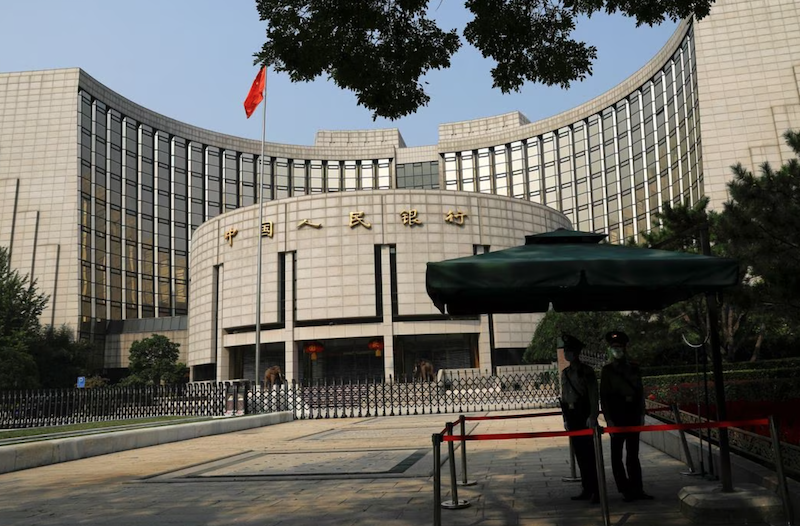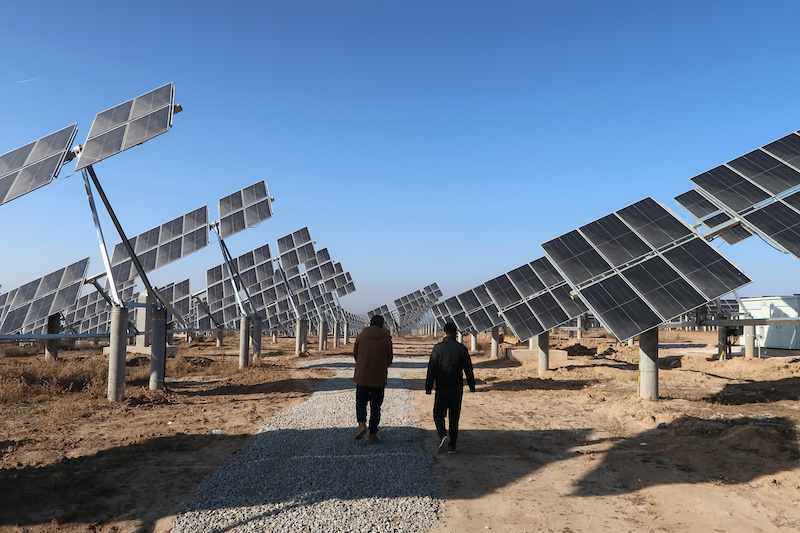China’s central bank is expected to ramp up liquidity – but leave its key interest rate unchanged – when it rolls over maturing medium-term policy loans on Friday.
That the most likely outcome foreseen by most of 32 market participants interviewed in a Reuters survey this week.
Some 29 respondents, or 91%, expected the People’s Bank of China (PBOC) to keep the borrowing cost of one-year medium-term lending facility (MLF) loans unchanged, while the remaining three projected a marginal interest rate cut.
The interest rate on the MLF loans currently stands at 2.5%.
ALSO SEE: Senior Auditors Wary on Review of VW Plant in China’s Xinjiang
Additionally, 26 or 81% of all respondents predicted that the central bank would inject fresh funds to exceed the maturing 650 billion yuan ($91.11 billion) worth of the MLF loans on Friday.
“We look for an outsized MLF to buffer liquidity demand emanating from bond sales and loans; if there is no outsized MLF, then a reserve requirement ratio (RRR) cut is probably needed,” Frances Cheung, a rates strategist at OCBC Bank, said.
$84 billion injected via MLF loans last month
Over recent months, China has started to unleash fresh stimulus to shore up the economy. In a surprise move, Beijing in late October approved 1 trillion yuan of sovereign bond issuance for this year – its first such budget deficit expansion in a fiscal year in 23 years – and passed a bill to allow local governments to frontload part of their 2024 bond quotas.
The PBOC also injected a net 600 billion yuan ($84.4 billion) of cash via MLF loans into the banking system in November, the biggest monthly increase since December 2016.
Expectations of an interest rate reduction has increased slightly as China has been facing heightened deflationary pressure, with consumer prices falling the fastest in three years in November while factory-gate deflation deepened.
“The main barrier to PBOC rate reductions since the middle of this year has been the strength of the dollar,” Julian Evans-Pritchard, head of China economics at Capital Economics, said.
“However, US yields have fallen and the renminbi has strengthened recently. The currency has now returned to levels that the PBOC is more comfortable with, which should open the door to a resumption of rate cuts.”
Yuan rises as US rate cuts seen next year
With China’s economy sputtering and the US dollar surging until recently, the yuan has had a volatile year, having weakened 6.14% to the dollar at one point before giving back some of the losses on views that US interest rates have peaked.
On Wednesday, the Federal Reserve took a decidedly dovish tilt by flagging rate cuts were on the way next year.
The yuan strengthened 2.55% in November, its best month this year, but it is still down about 3.3% year-to-date.
China will step up policy adjustments to support an economic recovery in 2024, state media said, following the annual Central Economic Work Conference held from December 11-12, during which top leaders set economic targets for next year.
“This signals that the Chinese leadership wants to put more weight on the economy than it did earlier this year,” said Tommy Wu, senior China economist at Commerzbank.
“Monetary policy will continue to be about providing sufficient but not excessive liquidity. This means any rate cuts and stimulus measures will likely be modest.”
- Reuters with additional editing by Jim Pollard
ALSO SEE:
China Consumer Prices Fall Fastest in 3 Years, Alarming Beijing
China’s Stock Index Near 5-Year Low After Moody’s Outlook Cut
Second Shadow Bank Rocked by China’s Property Crisis
Doubts About China’s Recovery Rise as Consumer Prices Dip
























